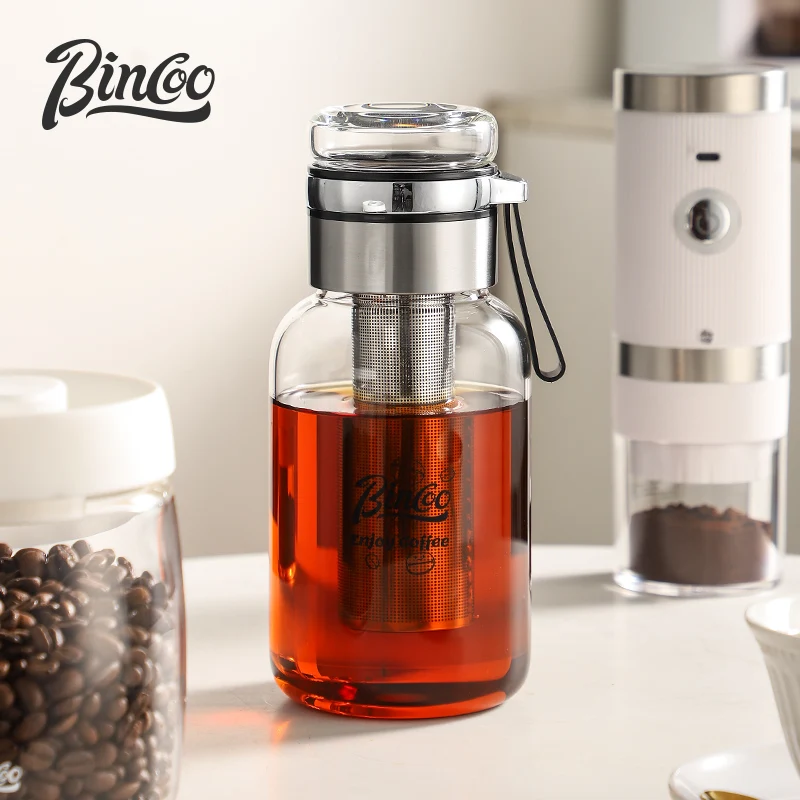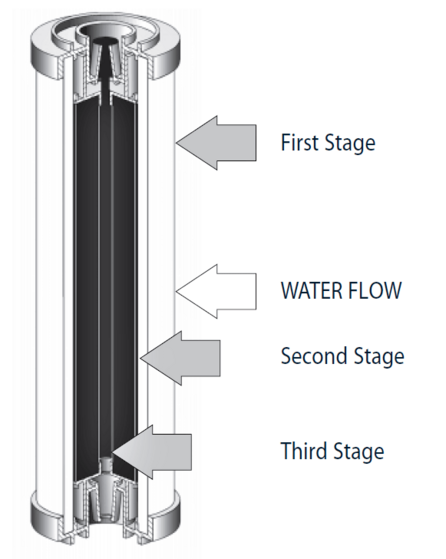Historical Origins Of Ceramic Water Filters
Fast-forward to 1827: Henry Doulton, an English potter with an eye for innovation, patented a purpose-built ceramic filter element that would pave the way for modern candle-type filters [1]. His breakthrough was to control pore size during firing, ensuring consistent removal of debris and bacteria. Victorian families soon welcomed Doulton’s devices into their kitchens, marveling at how a hollow, glazed clay cylinder could deliver clearer water than ever before. Production scaled up rapidly, and by mid-century, these filters appeared in schools, hospitals, and military outposts around the British Empire.
World War II saw a leap in ceramic filter technology when silver impregnation was added to the clay matrix, granting self-sterilizing properties and a guard against bacterial colonization [2]. Emergency field kits carried lightweight, gravity-fed units that soldiers and medics used to purify stream water on the go. After the war, civic-minded engineers adapted the same core elements for household systems, weaving in activated carbon cores to tackle chlorine and volatile organic compounds. This marriage of old and new gave birth to the versatile complete ceramic filtration system we know today.
Over nearly two centuries, ceramic filters have evolved from earthenware jars to precision-engineered modules in whole-house installations, rooftop units, and portable bottles. While materials science has refined pore structures and introduced advanced composites, the heart of the technology remains the same: forcing water through tiny channels to trap contaminants. It’s a testament to human ingenuity that the simplest solutions, born in antiquity, still stand at the forefront of safe water technology.
How Ceramic Filters Work
Imagine water slipping through a labyrinth of microscopic tunnels, leaving behind sand, rust, and bacteria like breadcrumbs along the walls. That’s the essence of mechanical filtration: water flows by gravity or slight pressure into a porous ceramic block, and particles larger than the pore size—often around 0.5 microns—cannot pass through [1]. Instead, they accumulate on the surface or within shallow channels, allowing clear water to emerge on the other side.
Beyond sheer mechanical action, many ceramic filters are infused with silver ions, which act as a bacteriostatic agent, preventing microbial colonies from taking hold in the pores [2]. Silver doesn’t leach harmful amounts into your drinking water; rather, it creates an inhospitable environment for bacteria. For chemical contaminants like chlorine or volatile organic compounds, manufacturers often nestle an activated carbon core in the hollow center of the filter, adsorbing unwanted taste and odor molecules as water passes through [3].

The beauty of this approach is its simplicity and reliability: no electricity, no membranes under high pressure, just gravity and tiny pores doing the heavy lifting. When flow rates slow, a gentle scrub with a soft brush under running water restores those microchannels, keeping your filter effective for months or even years.
Materials Used In Ceramic Filters
A strength of ceramic filters lies in their uncomplicated recipe: fine-grained clay, a pore-forming agent such as diatomaceous earth, and a controlled firing process. As the clay bakes, organic binders burn away, leaving behind a network of uniform pores tailored to trap protozoa, bacteria, and sediment [1]. The result is a porous shell that withstands repeated cleaning cycles without crumbling.
To add a layer of protection, silver ions are often impregnated into the ceramic matrix. Acting like microscopic sentinels, these ions inhibit bacterial growth within the pores, essentially giving the filter a self-sterilizing function [2]. In remote communities, families have reported far fewer gastrointestinal illnesses since adopting silver-treated ceramics, appreciating the low-maintenance, long-lasting performance.
Many modern cartridges also house an activated carbon core nestled inside the hollow filter. This carbon layer excels at adsorbing chlorine, volatile organics, and pesticides, improving taste and odor in ways that ceramics alone cannot achieve [3]. Specialty blends—sometimes branded under names like Aquametix®—might include mineral oxides or engineered ceramic composites to tackle fluoride and heavy metals, broadening the filter’s reach beyond conventional contaminants [5].
In large-scale applications, such as whole-house ceramic filters, manufacturers blend traditional clay with advanced additives for enhanced strength and tailored flow rates. These composite structures can even filter gases in industrial settings, demonstrating how an ancient medium continues to find cutting-edge uses.
Ceramic Filters Versus Other Purification Methods
When choosing a water purification method, it helps to see ceramic filters in context. Here’s a quick comparison:
| Feature | Ceramic Filter | Reverse Osmosis | Activated Carbon |
|---|---|---|---|
| Contaminant Removal | Bacteria, protozoa, sediment | Broad spectrum including dissolved solids | Chlorine, VOCs, some chemicals |
| Water Waste | None | 3–5 gallons waste per gallon purified | None |
| Power Required | No | Yes | No |
| Cost | Low to moderate | High upfront and ongoing | Low |

Ceramic filters shine in scenarios where you need reliable, low-cost purification without electricity or complex plumbing. Reverse osmosis systems excel at removing dissolved salts and heavy metals but carry higher installation costs and waste water. Activated carbon is great for taste and odor but can’t stop microbes. In many homes, people combine ceramics with carbon for a dual-action approach, then turn to reverse osmosis for a final polish on a dedicated drinking line.
Capabilities And Limitations Of Ceramic Filters
Ceramic filters can block up to 99.99% of bacteria and protozoa by physically straining water through pores as small as 0.5 microns [1]. They excel at removing sediment, turbidity, and pathogens without chemicals or power. Silver impregnation adds a bacteriostatic guard, extending service life and reducing maintenance chores [2].
However, no single filter is a panacea. Viruses, typically 0.02–0.1 microns in diameter, slip through standard ceramic pores, and dissolved minerals, salts, or nitrates remain unaffected [1]. Adding an activated carbon core can tackle chlorine, VOCs, and some PFAS, but heavy-duty chemical or salt removal often calls for reverse osmosis or ion exchange.
Combining technologies—ceramic pre-filtration followed by reverse osmosis—balances broad contaminant coverage with reduced membrane fouling. Regular scrubbing and timely replacement of carbon inserts keep flow rates up, while damaged or cracked ceramics must be swapped out to maintain safety [3]. By understanding both strengths and gaps, you can tailor a filtration train that meets your household’s unique water quality challenges.
DIY Ceramic Filter Construction vs Commercial Products
Crafting a ceramic filter from scratch can be a rewarding experiment but comes with uncertainties. A DIY recipe—mixing clay with sawdust or rice husk, shaping a candle or pot, then firing in a backyard kiln—can yield pore sizes around 0.5 microns if you nail the clay composition and temperature control [1]. But slight variations often leave pathways large enough for protozoa or debris to slip through [2].
Commercial filters, by contrast, are produced in controlled facilities with precise pore calibration, silver impregnation, and integrated activated carbon cores to adsorb chemicals and odors [3]. Specialty variants target fluoride and heavy metals, features home kits rarely include [5]. You trade DIY satisfaction for lab-tested performance, predictable lifespan, and simple cartridge swaps.
For many households, a happy medium is found in point-of-use ceramic filtration systems, which marry the hands-on appeal of clay with the reliability of industrial standards. These units often ship ready to install, require minimal setup, and deliver the assurance of certified water quality without kiln dust in your garage.
Maintenance And Cleaning Of Ceramic Filters
Keeping your ceramic filter in peak condition takes only a few minutes every couple of weeks. Gently scrub the ceramic element with a soft nylon brush under warm tap water to dislodge trapped sediment. This practice restores flow rates by reopening the 0.5-micron pores and can double output after stubborn clogs [1].
For deeper sanitation, soak the filter in a mild bleach solution—around one teaspoon of household bleach per quart of water—for 30 to 60 minutes. The silver impregnation helps prevent bacterial recolonization after rinsing [2]. Homeowners report that this gentle disinfectant soak can bring older filters back to near-new performance without harsh scrubbing.
If your filter includes an activated carbon core, swap it out every six months to ensure ongoing removal of chlorine, VOCs, and odors. Inspect the ceramic surface for hairline cracks or chips before reassembling—any damage compromises safety by letting contaminants bypass the barrier [3]. With simple upkeep, a quality filter can serve your household for years, delivering crystal-clear water one scrub at a time.
Ceramic Filters In Emergency And Humanitarian Settings
In the aftermath of floods, earthquakes, or drought, clean water often becomes the most precious commodity. Ceramic filters—whether simple clay cups or advanced candle systems—shine in these scenarios thanks to their lightweight, power-free operation. Relief agencies distribute these units to refugee camps and disaster zones, where families rely on them to remove up to 99.9% of bacteria and protozoa from contaminated sources [1].
When a coastal town’s water supply turned brackish after a storm surge, NGOs handed out silver-impregnated filter elements that cut diarrhea rates by nearly half within weeks, restoring trust in every pitcher poured [2]. Training sessions teach simple cleaning rituals and emphasize the value of gentle scrubbing to keep flow alive. For larger community centers or schools, whole-house ceramic filters provide continuous protection at each spigot, ensuring every drop is free of harmful microbes and sediment [3].

Whether off-grid in remote highlands or amid urban rubble, these modest clay devices become frontline tools in the battle against waterborne disease. And with minimal training, communities keep them running for years—an enduring legacy of resilience in the face of crisis.
Recent Advancements In Ceramic Filter Technology
The past decade has witnessed remarkable breakthroughs in ceramic filtration. Engineers now produce pores as small as 0.2 microns, elevating bacterial and protozoa removal efficiency above 99.9% [1]. Sintering techniques have improved, creating ultra-strong ceramics that resist cracking and extend filter lifespan by up to 50% compared to older models [2].
Next-gen cartridges often feature advanced silver impregnation methods for sustained antimicrobial action, alongside high-grade activated carbon designed to tackle PFAS, pharmaceuticals, and disinfection byproducts [3]. Cutting-edge blends, such as those branded under Aquametix® or CeraMetix®, can even reduce fluoride and heavy metals, once thought beyond the reach of ceramic media [5].
Researchers are exploring graphene-ceramic composites that promise ultra-lightweight elements with superior strength, yielding portable filters weighing under one pound. Meanwhile, smart whole-house systems now integrate IoT sensors that alert homeowners when flow rates dip or media need replacement, blending a centuries-old medium with 21st-century connectivity.
Conclusion
Ceramic water filters stand as elegant proof that simple materials—clay, silver, carbon—can deliver profound impact. By forcing water through microscopic pores, they physically block microbes and sediment without reliance on electricity or complex membranes [1]. Silver impregnation and activated carbon cores augment their capability, tackling bacteria growth and chemical contaminants alike [2] [3] [5]. Whether you’re outfitting an off-grid cabin, preparing for emergencies, or simply seeking cleaner kitchen tap water, ceramic filters blend heritage and innovation in every drop.
Citations
“`html
Complete Top Picks Comparison – 23 Products
| Product | Source | Price | Rating | Image | Buy |
|---|---|---|---|---|---|
| Culligan ZeroWater 40-Cup Ready-Pour 5-Stage Round Glass Water Filter Dispenser with 5-Stage 0 TDS Water Filter – IAPMO Certified to Reduce Lead, Chromium, and PFOA/PFOS | $56.99 | ★★★★☆ |  | Buy Now | |
| LifeStraw Home Water Pitcher, 7-Cup, White, Glass with Silicone Base, White, for Everyday Protection Against Bacteria, Parasites, Microplastics, Lead, Mercury, PFAS and a Variety of Chemicals | $64.99 | ★★★★☆ |  | Buy Now | |
| AquaEasy 4 Inch Ceramic Water Filter Candles (Pack of 4) Replacement Filter for Gravity water filtration system | Household Water Bucket Filtration System | Suits all major brands | | $60.00 | ★★★★☆ |  | Buy Now | |
| Purewell 2.25G Gravity Water Filter System with Water Level Window, 3-Stage Stainless Steel Countertop System with 2 Washable Ceramic Filters and Stand, Reduce up to 99% Chlorine, PW-KST | $169.00 | ★★★★☆ |  | Buy Now | |
| Purewell 3-Stage Gravity Fed Water Filter System, 2.25 Gallon Stainless Steel Countertop System with 2 Washable Ceramic Filters, Metal Water Level Spigot and Stand, Reduce up to 99% Chlorine, PW-OBT-K | $0.00 | ★★★★☆ |  | Buy Now | |
| Sawyer Products SP128 Mini Water Filtration System, Single, Blue | $28.99 | ★★★★★ |  | Buy Now | |
| Replacement Ceramic Dome Water Filter 0.2 to 0.5 micron for Countertop & Water Coolers. First Stage of Filtration, Traps all Impurities | $13.99 | ★★★★☆ |  | Buy Now | |
| 2 PCS 7 inch ceramic water filter Candle,7” water filter replacement filters with Activated Carbon for Countertop Gravity Water Filter System,Water Cooler Filtration Systems | $29.99 | ★★★☆☆ |  | Buy Now | |
| 2 Pack 7” ceramic water filter Candle,7 inch water filter replacement filters with Activated Carbon for Countertop Gravity Water Filter System,Water Cooler Filtration Systems. | $37.99 | ★★★★☆ |  | Buy Now | |
| HUI NING Replacement Ceramic Dome Water Filter and Faucet Kit for Countertop,Household Water Bucket, Water Cooler Filtration Systems Water Pitcher (2 Dome Filters & 2 Black Taps) | $24.45 | ★★★★☆ |  | Buy Now | |
| 2024 Used ZOTAC GeForce RTX 3070-8GD6 X-GAMING Video Cards RTX 3070 8GB GDDR6 256bit GPU Graphic Card | $125.91 | ☆☆☆☆☆ |  | Buy Now | |
| VTOMAN FlashSpeed 1000 Portable Power Station 2000W 828Wh LiFeP04 Battery For Outdoor Camping Tent Travel | $273.52 | ☆☆☆☆☆ |  | Buy Now | |
| Pool Filter Drain Plug Pool Pump Replacement Parts Water Outlet Nozzle Skimmer Cover Gasket Seal For Spa Tank Maintenance | $10.90 | ☆☆☆☆☆ |  | Buy Now | |
| MAXSUN Graphics Cards RTX 4060 Terminator 8G GDDR6 GPU 128bit PCI Express 4.0 X8 Gaming Video Card Desktop Computer Components | $153.37 | ☆☆☆☆☆ |  | Buy Now | |
| Sail Solar 48V 51.2V LiFePO4 Battery LV 6000 Cycle Times 100Ah 200Ah | $392.33 | ☆☆☆☆☆ |  | Buy Now | |
| USED Video card RTX 3070M (3070 Laptop) 8GB 256Bit DDR6 Non LHR Perfectly Compatible With Mining BTC ETH Speed Reaches 65+MH/S | $119.60 | ☆☆☆☆☆ |  | Buy Now | |
| Bincoo Transparent Coffee Cup Stainless Steel Long Filter Cold Extraction Cup Glass Soaking Cold Brewing Pot Office 500ml Water | $24.96 | ☆☆☆☆☆ |  | Buy Now | |
| USED Graphics Card RTX 3060 12GB 8pin Placa De Video GAME NVIDIA GPU GDDR6 192bit HDMI*1 DP*3 PCI Express 4.0 x16 rtx 3060 12gb | $108.93 | ☆☆☆☆☆ |  | Buy Now | |
| Petrol Filter Parking Heater Intake Filter Marine Water Separator Replacement Oil Filter Auto For Webasto/ Eberspacher | $6.94 | ☆☆☆☆☆ |  | Buy Now | |
| ECOFLOW-Tracker solaire portable DELTA PRO / DELTA MAX, station d’alimentation pour le plein air, 30% | $681.89 | ☆☆☆☆☆ |  | Buy Now | |
| ICEPURE RWF0900A Fit For WRX735SDHZ Filter4 WRF555SDFZ09 9006 Water Filter 4Pack | $31.58 | ☆☆☆☆☆ |  | Buy Now | |
| String Wound Sediment Water Filter Cartridge 2.5×10″ 10 Micron 50 Pack | $97.00 | ☆☆☆☆☆ |  | Buy Now | |
| 3-Stage Whole House Water Filter System 20″x4.5″ with Spin Down Sediment Filter | $289.99 | ☆☆☆☆☆ |  | Buy Now |
“`

